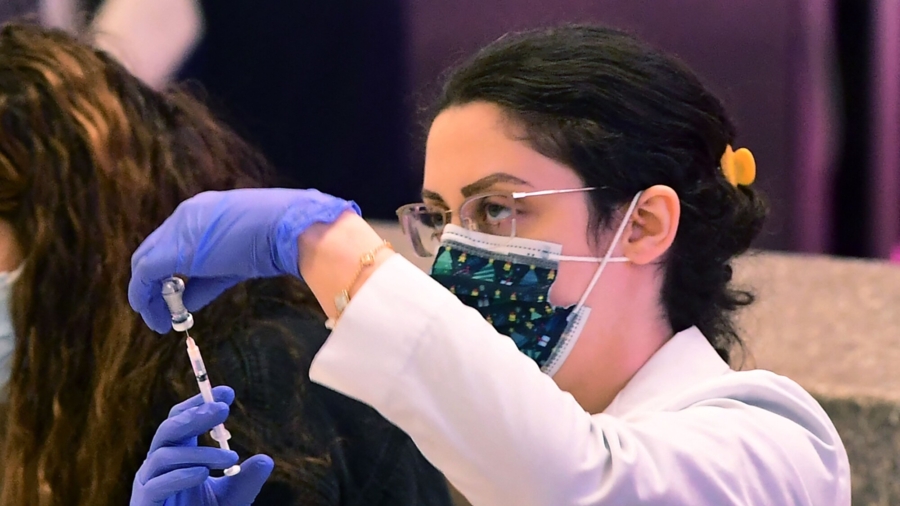The U.S. Centers for Disease Control and Prevention (CDC) on Tuesday backed the Food and Drug Administration’s (FDA) decision to offer COVID-19 booster doses after five months, rather than six months.
The recommendation applies to the Pfizer-BioNTech mRNA vaccine, according to the agency. The CDC still suggests that the Moderna and Johnson & Johnson recipients get their boosters six months and two months, respectively, after they get their initial vaccines. On Monday, the FDA said the new booster interval guidance applies to individuals aged 12 and older.
“Following the FDA’s authorizations, today’s recommendations ensure people are able to get a boost of protection in the face of Omicron and increasing cases across the country, and ensure that the most vulnerable children can get an additional dose to optimize protection against COVID-19,” CDC Director Rochelle Walensky said in a news release.
The CDC on Tuesday also suggested that moderately and severely immunocompromised 5-to 11-year-old children should receive an additional booster dose.
Walensky then recommended that parents and children who are eligible for a third dose, or booster, go receive one. She reiterated that CDC’s Advisory Committee on Immunization Practices will meet Wednesday to discuss authorizing booster shots for children aged 12 to 15.
“Throughout the pandemic, as the virus that causes COVID-19 has continuously evolved, the need for the FDA to quickly adapt has meant using the best available science to make informed decisions with the health and safety of the American public in mind,” FDA Acting Commissioner Dr. Janet Woodcock said in a statement on Monday after her agency’s decision.
Before making its decision on shortening the time one can receive a booster dose, the FDA said it reviewed “real-world data” that was sourced from Israel, “including safety data from more than 6,300 individuals 12 through 15 years of age who received a booster dose of the vaccine at least 5 months following completion of the primary two-dose vaccination series.”
The move to lower the amount of time needed to get a Pfizer booster may factor into businesses’ and organizations’ decisions on whether to mandate a booster shot as a condition for employment or entering a facility or venue. A growing number of institutions—especially universities—in the United States are now mandating that workers, students, or staff get a booster dose.
On Dec. 22, Danny Meyer, the head of the Union Square Hospitality Group and Shake Shack founder, said that starting “immediately,” his businesses “are going to be requiring that 100 percent of our staff members have a booster within 30 days of their eligibility.”
Meanwhile, numerous studies and data suggest the Omicron variant presents milder symptoms and fewer hospitalizations than previous variants. A top World Health Organization official on Tuesday said that data shows Omicron primarily impacts the upper respiratory tract, causing milder illness.
“We are seeing more and more studies pointing out that Omicron is infecting the upper part of the body. Unlike other ones, the lungs who would be causing severe pneumonia,” WHO Incident Manager Abdi Mahamud told reporters in Switzerland.
From The Epoch Times


